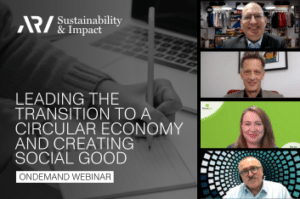
Twilight Trade Virtual Information Session
Global shopping destinations seamlessly weave retail into the fabric of city life, day and night. The ARA has been working with the City of Melbourne to understand the role that
Home

Global shopping destinations seamlessly weave retail into the fabric of city life, day and night. The ARA has been working with the City of Melbourne to understand the role that

Discover how to navigate the delicate process of termination, where we’ll delve into best practices and compassionate strategies for managing difficult conversations, transitions in the workplace and legislation in relation

The Closing Loopholes legislation introduced harsher penalties for employers that intentionally commit wage theft. The new amendments mean if an employer is found to have intentionally committed wage theft, they

Join Jason Robertson, ARA Director of Policy, Sustainability & Impact, in conversation with Natalie Phillips-Mason, Founder of Inclusive Change, to discuss key insights from the recent 2023 Neurodiversity in Retail

The Closing Loopholes legislation has introduced a new employee-choice casual conversion pathway that comes into effect on the 26 August 2024. These changes replace the previous rules on casual conversion,

On 12 February 2024, the Closing Loopholes Bill No.2 passed the Parliament, which includes the new Greens-proposed laws giving employees a “right to disconnect”. Catch up now to gain further

Join Nick Tindley and the ARA Employment Relations team as they unpack what Closing Loopholes means for employers, including key changes, key dates, and key compliance risks. Register now

In September 2023 the President of the Fair Work Commission announced the Award Modernisation Review. It also considered any proposals to make modern awards easier to use. Watch this member-exclusive

The last 12 months has seen a huge number Workplace Relations measures being passed. Many of these reforms are coming into effect in 2024. Watch this member-exclusive webinar to gain further

The retail sector has a critical role to play in leading the transition to a circular economy due to the significant influence retailers have on product design, manufacturing, logistics, consumer behaviour and resource recovery. Retailers are key to achieving sustainable consumption
